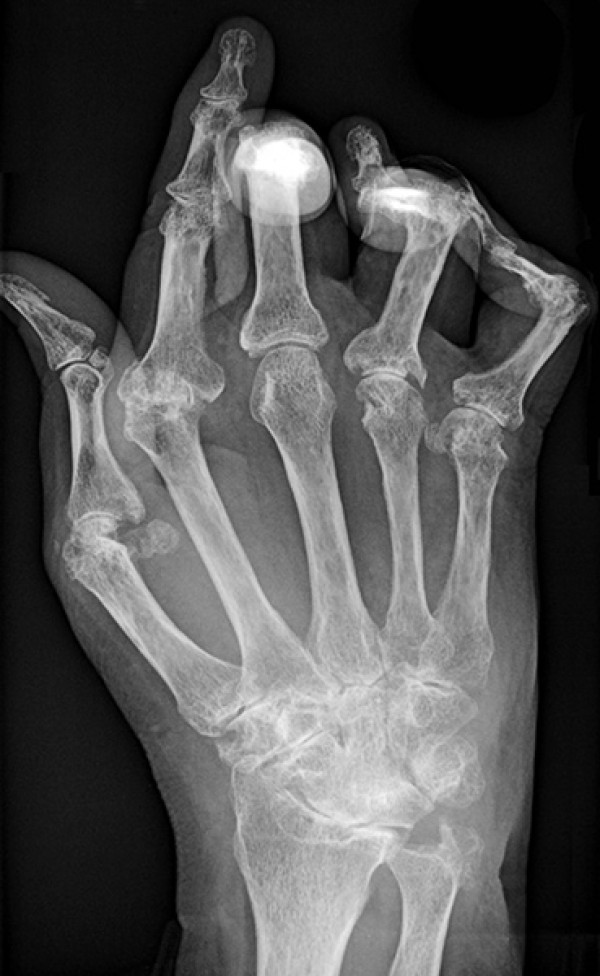Residing within all of us is a colony of bacteria in the stomach. These bacteria help us digest food and prevent infectious microbes from taking hold, preventing illnesses. Whilst beneficial, itÔÇÖs not all good news, with these bacteria being implicated in obesity and allergies. New research from Harvard Medical School (HMS) in America suggests that a new disease can be added to the list of maladies caused by your gut flora: rheumatoid arthritis.
Scientists have suspected for a long time that autoimmune disorders could be caused by gut flora in humans and in animals. These suspicions are now being confirmed in humans. ÔÇ£ItÔÇÖs a very striking findingÔÇØ says Diane Mathis of HMS.
Rheumatoid arthritis is a disease that can affect people from any age, but particularly young and middle aged people. It causes increasing discomfort from joint stiffness in the hands and feet, and can also affect bone and cartilage and cause damage to your lungs and kidneys. It is caused by the bodyÔÇÖs immune system attacking its own tissues. Scientists do not know what triggers this behaviour in people, but gut bacteria is playing an increasing role in research into this area.
Gut bacteria live in a symbiotic relationship with us, as mentioned above with food, but now have a role to play with the immune system. Dan Littman, of New York University, has research that showed gut microbes were important of the development of an immune cell called Th17. Both Littman and Mathis worked together to see what microbe was responsible for Th17 and narrowed it down to Prevotella copri (P. Copri). In one study conducted, this bacterium was present in 75% of people with rheumatoid arthritis compared to 21% for healthy people.
The results by themselves are not conclusive proof of a link between P. Copri and rheumatoid arthritis. Further studies are needed, but infecting humans with P. Copri is not ethically viable. Instead, a much larger sample of participants is needed in which their gut flora is sampled. This group of people will then be monitored over the course of years to see who develops rheumatoid arthritis.
In the meantime, scientists have concentrated on mice studies. It has been found that mice have increased inflammation when infected with P. Copri. It didnÔÇÖt develop into arthritis, due to the possibility that a different strain of P. Copri was used, but the corroboration of infection and inflammation is promising.
The findings open the possibilities of new therapies to treat or prevent rheumatoid arthritis from developing with, hopefully, less side effects of the current regimen such as increased risk of cancer and infections.
Scott Davies





Add Comment